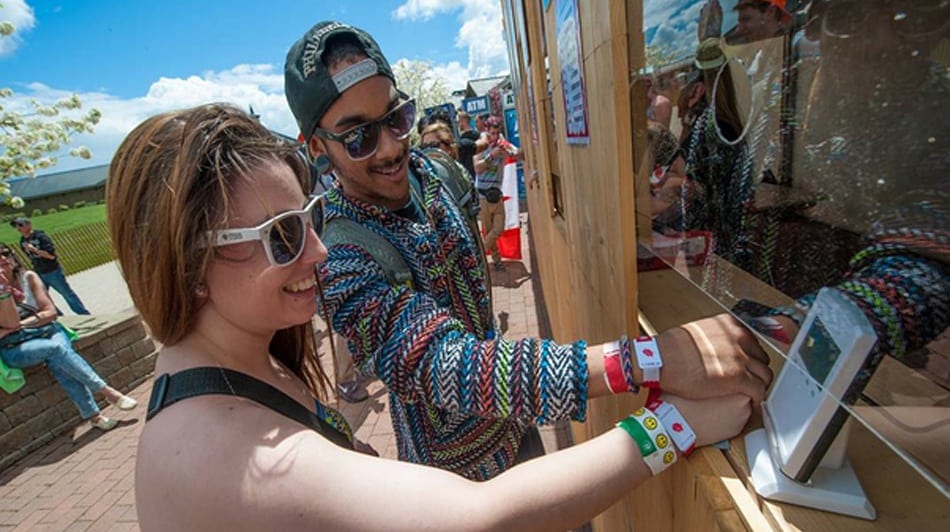Running a festival in a city is an entirely different beast than taking over a field in a rural area. The number of potential obstacles—ranging from angry neighbors to unresponsive mayors—can seem on the surface to be unreasonable and impossible to surmount. But the civic landscape can offer incredible diversity and potential if you have the negotiating skills to keep all parties happy.
And Sean Horton is someone that has exemplary negotiating skills.
Horton’s electronic music festival Decibel in Seattle has thrived in the city’s bustling downtown and Capitol Hill districts over the past twelve years. Using as many as 12 existing bars, clubs and concert venues around the city’s most lively areas, Horton built a community-driven event that brought in around 23,000 people over four days to Seattle. By bringing the local, non-partnering businesses into the conversation, Decibel became a welcome event and considered an economic stimulator for the areas it was staged in.
As Horton brings Decibel Seattle to a close and sets his sights on a debut edition in Los Angeles, we spoke to him about the challenges of throwing a festival in a city and got some insight into what he’s learned from more than a decade of negotiating.
Know the Neighborhood and the Neighbors
Everything starts with the city. Get to know the neighborhoods you’ll be operating in, the people who live there, and focus on how to create an event that is both inclusive and convenient.
“When I’m looking at the neighborhood and the venues that we’re working with on Decibel, I always map it out and make sure that everything is typically walkable,” explains Sean. “The other thing that I do is I look at all the businesses that are between those venues — whether it’s a bar, a coffee shop, a clothing shop, a drugstore or a bus line — everything that encompasses that neighborhood, and we create this sort of Google Map outline of what the overall festival looks like.”
“Once you have that sort of scope nailed down, you can go to those businesses and negotiate with them on discounts for pass holders, posters in the windows, drink specials,” he continues. “You basically create the same sort of outdoor festival culture where you have food carts and places for people to relax, but you create that within a downtown, urban environment. And everybody wins.”
Harness the Existing Infrastructure
“We’re dealing with existing venues that all have a built-in infrastructure in relation to security, ticketing, and audio/visual infrastructure, so there’s not much we need to do with the city. Anything we would do outdoors in a public setting, there was permitting required for that, and we did have a strong relationship with the city officials that allowed us to permit large, outdoor spaces, which we did every year as part of the festival program.”
“There was a time, early on, when we were debating whether we would want to grow to the level where we had a sort of large-scale operation—like Movement in Detroit for instance. But to me it always boiled down to working with venues that we loved, had experience working with, and [that we] trusted to provide us with the infrastructure we needed so that we didn’t have to build it from the ground up. It means a lot less money spent on production and a lot less time spent on the operation side of the festival.”
“My advice would be to work with venues that you trust and that you have a relationship with, and make it very clear that you have this vision to create an immersive environment—in our case, we may need to bring in an extra set of speakers, maybe some video wall projections. As long as they know that and expect it, they’ll staff accordingly and we found that 95% of the time they’re generally amicable in terms of working with you to make sure your vision is obtained.”
Keep Everyone Happy
As we mentioned, Sean is a master at negotiating towards a situation in which everyone wins. He knows that if there is unhappiness amongst the neighbors or the city, the event will come under jeopardy. And rightly so. His years of working with the businesses has built a strong foundation that allowed him to create lasting relationships with local organizations that benefit both parties.
“I’m there to help guide and negotiate the vision and make sure that all of the businesses we’re working with, all the partners we’re working with, all the venues we’re working with, understand what our audience is like, who they are, what the demographic is, and it allows them to tailor everything to make the best possible experience for the attendees.”
“Really they only benefit that we’re getting from it is that they’re helping to push our brand through theirs, and that our attendees generally have access to discounts and in some cases free activations as part of being a pass holder. Which in the long run, adds value to the pass for us and adds value to the festival as a whole.”
Gather Your Data and Be Transparent About Your Audience
This plays back into bringing the community into the conversation and making them a part of the event. If the city, its residents and its businesses know who this incoming audience is, then they are likely to be much more receptive to their presence. And you can only show who they are by having data.
“If the festival attendees were coming from out of town, we knew they were staying in a hotel, which meant that was additional revenue that the city was seeing. We knew that they probably needed some sort of travel guide to understand the city. If they’d been multiple times, they probably have a better understanding of the city, the layout, and where to go. Once we had all that information, we put it into a very concise deck that had a combination of information and infographics about the festival but also about our attendees that would allow businesses to see whether or not it was something they were interested in offering some sort of partnership with,” says Horton.
But aside from forging meaningful, local bonds, the biggest value of this data gathering is passed onto the consumer and the businesses.
“It’s really important to be in contact with the neighborhood and the business communities there. Have everything in place to show them who’s coming, where they’re coming from, what age group, what sex, and what their interests are.”
Ticketing Multi Venue Festivals is Complicated. Be Prepared.
Having a reliable ticketing partner to conduct sale of passes and smart wristbands not only allows for better gathering of data, but a smoother flow throughout the venues. Sean admits that this has been the biggest headache for Decibel.
“Ticketing has been our Achilles heel over the years. We have 12+ venues, and each one of which has their own exclusive relationship with a ticketing provider, so we may have let’s say 18 different ticketing partners – between our pass holder and people that purchase tickets on the door.”
“For each individual show, we had our own will call list, our own pass holders that we would reserve capacity for, and each individual show has to basically have a runner and a manager to make sure that we’re selling enough tickets and reserving enough of the capacity for pass holders. I think the ticketing and the artist coordination are the two most complicated things that I manage with Decibel, and over the years we’ve just gotten really good at it.”
The Partnerships Can Help You Shave Costs
“Based on my experience, not only does the neighborhood want you to be there, but they will fight for you to be there and they will fight for you to extend out partnerships, and I think part of that is working with the Chamber of Commerce in that neighborhood, which we’ve done in the past.”
You might be bringing in more of an influx of out of town people, and that’s good! That means they’re going to be staying at hotels, eating at restaurants, shopping in stores. And those are the business that you can take that really nice deck you’ve created based on all the marketing information you have and submit that and who knows, that might be how you acquire your hotel partner or how you acquire free meals for artists through some sort of ticket voucher.
Masterclass Conclusion
Sean gave us a lot of very strong advice about what it takes to throw a festival in a downtown civic area, but it seemed that engaging with the locals and being accommodating to their needs is the most crucial part of the puzzle. They need to know that your event won’t disrupt their lives or cut into their livelihoods, and if you can couple your negotiating skills with some compelling data, you’ll be able to bring about a situation that works for everyone.]]>


